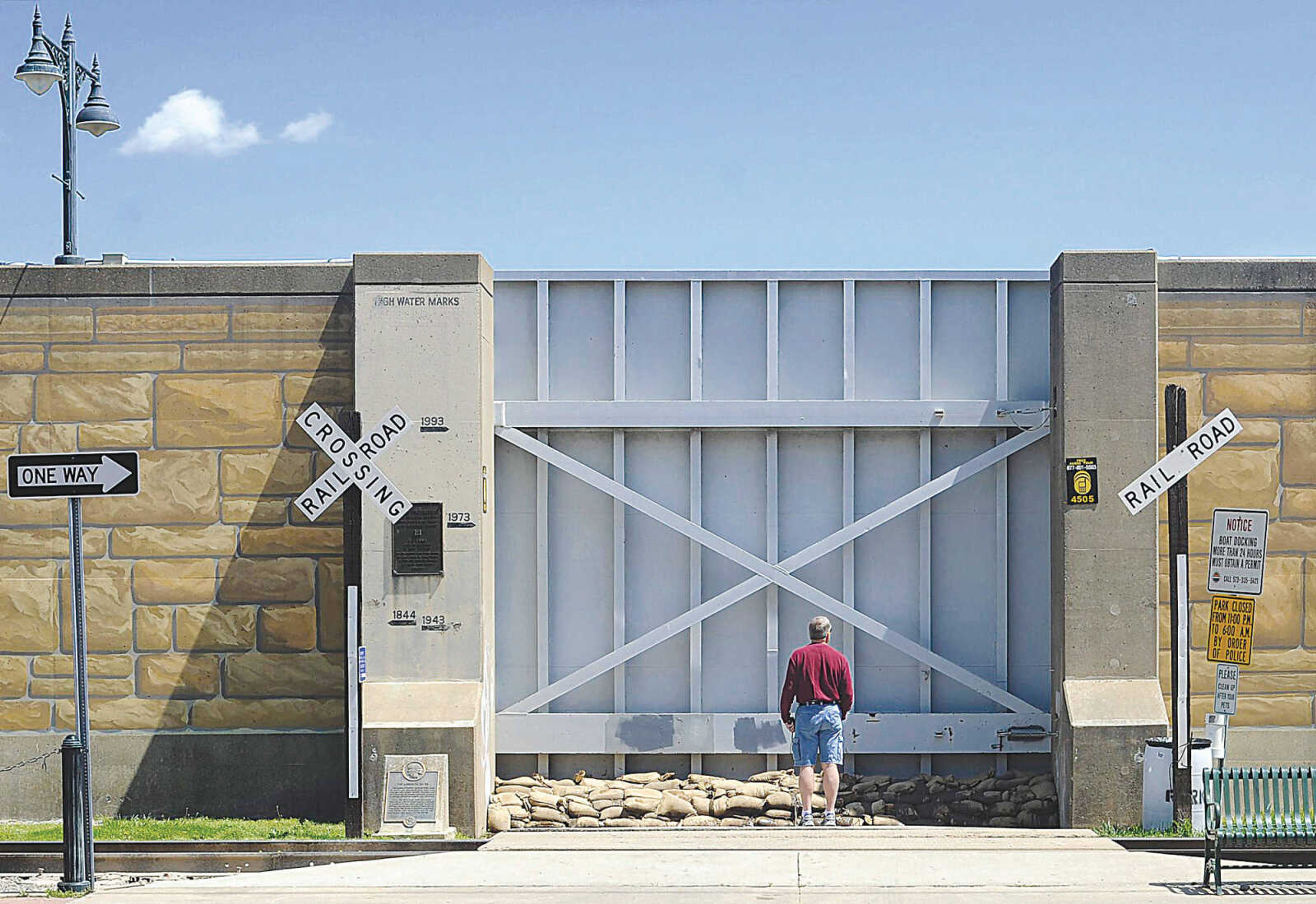House bill contains almost $18M for Cape flood control
WASHINGTON -- The U.S. House passed a $12 billion-plus bipartisan measure authorizing 34 water projects, including $17.6 million in repairs and renovations to Cape Girardeau's flood-control system.
WASHINGTON -- The U.S. House passed the closest thing so far this year to an infrastructure bill -- a $12 billion-plus bipartisan measure authorizing 34 water projects, including $17.6 million in repairs and renovations to Cape Girardeau's flood-control system.
The Water Resources Reform and Development Act passed Tuesday on a 412-4 vote. Lawmakers shook off criticism from conservative and watchdog groups such as Heritage Action and Taxpayers for Common Sense that argued the bill should have done more to rein in wasteful government spending.
The Senate could vote on the bill before the end of the week, sending it to President Barack Obama for his signature. The legislation is a bipartisan compromise of companion bills passed separately by the House and Senate last year. After months of negotiations, a final deal on it was reached last week.
Missouri congressman Jason Smith, R-Salem, hailed the bill's passage in a news release.
"The floodwall is essential to life in downtown Cape Girardeau. Just last summer the Mississippi River crested at near record levels. Without a functioning flood protection system, much of downtown would have been under water," Smith said. "The Water Resources Reform and Development Act that passed the House today represents what can be achieved when Members of Congress put their constituents first. This is the first time in history that a water resources bill has passed Congress without a single earmark."
Cape Girardeau will pay $746,000 toward the $17,687,000 flood-control project. It includes:
* Repairs and renovations to the floodwall and retaining wall.
* Replacement of the subdrainage system.
* Renovations to the pump stations and pump-station structures.
* Maintenance to the Merriweather tunnel.
* Renovation of seals at the flood gates for the railroad and at Broadway and Themis streets.
Supporters of the bill, including business interests such as the U.S. Chamber of Commerce, hailed it an economy-boosting measure that could deliver thousands of new jobs.
"It's going to keep America competitive," said Rep. Bill Shuster, chairman of the House Transportation Committee.
Shuster, R-Pa., and other lawmakers also argued the bill was more fiscally responsible than past water projects bills. On the House floor, he noted the bill puts an end to $18 billion in dormant water projects passed before 2007.
That was not enough for some critics. A Taxpayers for Common Sense analysis released this week called the bill "a missed opportunity to reform management of our nation's infrastructure in a fiscally responsible manner."
With an estimated cost of $12.3 billion, the measure is a slimmer version of past water project bills. The last one in 2010, for example, had a price tag of $23.3 billion.
The new bill addresses pent-up demands by lawmakers, including addressing flooding concerns in places like Fargo, North Dakota, and the Natomas Basin in the Sacramento, California, area.
There are also big investments in projects that improve infrastructure for commerce.
The bill sanctions more than $748 million in federal funds for dredging and widening of the Sabine-Neches Waterway, which is billed as "America's Energy Gateway" because the roughly 80-mile waterway services oil and natural gas refineries in Texas and Louisiana. It also includes approval of up to $492 million for expanding and deepening the Port of Savannah, one of the country's fastest growing ports. Actual funding of all the projects will require separate bills.
Congress is expected to consider another key infrastructure bill before the end of the year. A Senate panel last week approved a bill to keep federal highway programs going for the next six years, but it remains uncertain whether Congress will complete its work in time to stop a disruption in transportation aid to states this summer.
Besides authorizing specific water projects, Tuesday's bill makes changes to how future projects are to seek funding. It sets specific time and cost limits for studies on potential projects, eliminates duplicative Army Corps of Engineers reviews and speeds up the environmental review process for projects.
The bill also increases spending from the Harbor Maintenance Trust Fund to pay for improvements to ports and creates a five-year pilot program to provide loans and loan guarantees for various water projects.
Connect with the Southeast Missourian Newsroom:
For corrections to this story or other insights for the editor, click here. To submit a letter to the editor, click here. To learn about the Southeast Missourian’s AI Policy, click here.









